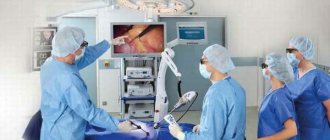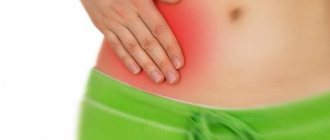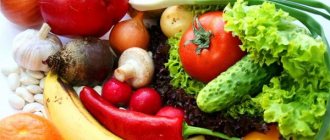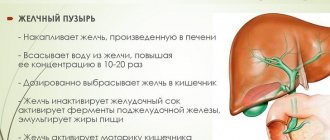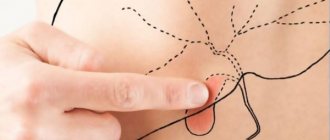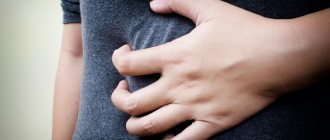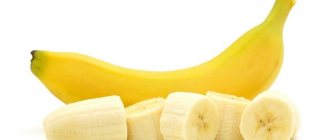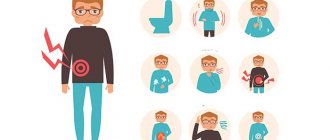Sometimes after removal of the gallbladder, bitterness in the mouth is a common symptom. Lifestyle changes dramatically after cholecystectomy. The digestive organs are under enormous stress, so after the procedure to remove the gallbladder, it is very important to adhere to all instructions and recommendations. Otherwise, unintended consequences may occur, which include a feeling of bitterness in the mouth. Failure to maintain proper nutrition and other errors can cause pain on the right side, which can be accompanied by nausea, intestinal upset, bloating, and increased gas production.
Causes
If the gallbladder is removed, bitterness in the mouth is considered a frequent companion for the patient. Not only a bitter taste in the mouth begins to occur, but also dry mouth after surgery to remove the gallbladder. The key predisposing factor in the development of persistent bitterness in the mouth after the gallbladder is removed is the reflux of food from the intestines back into the abdominal cavity. This mass is a substance that is saturated with bile secretions and stomach acid. This is why there is a strong bitterness in the mouth if the bile ducts are overloaded.
Why does a bitter taste appear in the mouth? After cholecystectomy, a bitter taste in the mouth may often appear. This is one of the symptoms of postcholecystectomy syndrome. In the abdominal cavity, the substance begins to cause pain, heaviness, and burning. The body reflexively tries to remove the internal contents, resulting in nausea and vomiting.
Peristalsis intensifies, the mass is mixed with a huge amount of acid and secretion. As a result, bitterness occurs in the mouth. This symptom occurs especially often after eating. The causes and treatment of this condition are directly related to each other, since the duration of therapy and the treatment algorithm will depend on the severity of symptoms. It is very important to see a doctor to get rid of unpleasant symptoms. Bile, which was previously in the organ cavity, begins to be thrown into the intestinal tract and into the epigastric region.
Another reason for a sour taste in the mouth is considered to be an increase in the concentration of bilirubin in the absence of a gallbladder. Gastrointestinal acid in the mouth is not the only cause of the unpleasant condition. The resulting bitterness in the mouth is caused by the fact that bile stagnates in the liver tissues and hepatocytes over a long period of time, due to which the concentration of this substance significantly increases.
The liver cannot cope with this substance after treatment of cholecystitis, as a result of which it continues to be in the general bloodstream for a long time. The result is intoxication with toxic substances, the oral cavity is filled with a bitter taste. Another reason that discomfort occurs in the mouth after organ removal is that the pancreas does not function normally. Gallstone disease causes the development of various disorders in the digestive organs. With radical treatment of this disease, certain complications arise, they are expressed in stagnation, pathological reactions.
Removal of the gallbladder. Consequences. Reviews
All consequences of gallbladder removal are combined into one term - postcholecystectomy syndrome. Let's talk about this in more detail. Let's give a definition.
Postcholecystectomy syndrome is a group of diseases associated directly or indirectly with surgery to remove the gallbladder, as well as diseases that progress as a result of the operation. Let's try to figure out this problem together.
As a rule, discomfort after surgery lasts only 1-2 months, provided all medical instructions are strictly followed.
Cholecystectomy can be performed laparoscopically or abdominally. In cases where the patient has been diagnosed with severe infection or the presence of large stones that cannot be removed in any other way, abdominal surgery is performed - removal of the gallbladder. Laparoscopy in other uncomplicated cases is most relevant.
How to get rid of bitterness in your mouth
What to do if there is a bitterness in the mouth after the gallbladder removal procedure? What medications to take to get rid of unpleasant symptoms if bitterness appears in the mouth is traditionally decided only by a doctor. Self-medication in such a situation is unacceptable. You should not take any medications or use unconventional methods of therapy. It is important to visit a specialist who will tell you what medicine to take to get rid of biliary disease. To eliminate the unpleasant symptom that occurs after cholecystectomy (bitter taste in the mouth) and to maintain the condition of the body as a whole, the following elimination options are prescribed:
- treatment with medications,
- folk remedies therapy,
- the right diet, thanks to which you can reduce the amount of bile in the stomach.
What means can be used to remove bitterness should be decided by a specialist.
Medication and folk treatment
If bitterness appears in the mouth, it is recommended to visit a doctor who will determine the cause of this symptom and then draw up a treatment regimen. You should not deal with the problem on your own, as you can worsen your condition. This applies not only to medicines, but also to traditional medicine.
Allochol prevents the formation of stone-forming bile, relieves pain, flatulence, heartburn after cholecystectomy
To eliminate bitterness after cholecystectomy, you need to carry out complex therapy: medications, folk remedies, diet.
Medicines that will help get rid of bitterness after cholecystectomy:
- Medicines with bile acids: Allohol, Cholenzyme, Lyobil. Most often, Allochol is used, which prevents the formation of stone-forming bile, relieves pain, flatulence, and burning behind the sternum.
- Antispasmodics relieve or reduce pain that occurs due to spasm of smooth muscles. For this purpose, No-shpu, Duspatalin, Buscopan, Mebeverine, etc. are used.
- Hepatoprotectors provide protection of hepatocytes from negative external influences and restore the structure of the liver. In addition, these medications have an anti-inflammatory effect and normalize the composition of liver secretions. The most popular hepatoprotectors: Essentiale, Ursosan, Gepabene, milk thistle extract.
- Prokinetic drugs stimulate gastric and intestinal motility and improve bile flow. Take medications 15 minutes before meals. This group includes Motilium, Debridat, Cerucal.
- Enzyme agents normalize the peristalsis of the digestive system and have enzymatic activity. Patients are prescribed Mezim, Pancreatin, Creon, Micrasim, etc.
Folk remedies are used as part of complex therapy to eliminate negative effects after cholecystectomy. For this purpose, decoctions based on medicinal herbs (rose hips, lingonberries, tansy, flax) are used. In addition, teas and infusions are prepared from plants. However, they can only be consumed after the doctor’s approval.
It is recommended to drink dried fruit compotes. They can be consumed on an empty stomach and throughout the day.
To speed up the movement of liver secretions through the bile ducts, immortelle, chamomile flowers, rhubarb root, and corn silk are used. Plants are used to prepare decoctions and teas. Such drugs demonstrate a choleretic effect.
Drug therapy
If there is an unpleasant aftertaste, it is better to cook only by steaming, you should not eat fatty, spicy foods, and you should not drink alcoholic beverages. The following medications are used to support the liver: Duspatalin, Meverberine. These medications can only be used after consulting a doctor. They will help eliminate spasms, heaviness and discomfort, bile will flow freely from the ducts.
In case of unfavorable processes in the liver, it is necessary to take hepatoprotectors. With their help, you can improve the functioning of the organ, restore metabolism, and activate the flow of bile. Additionally, the doctor prescribes choleretic drugs (Allohol, Holosas).
Prevention and diet
To prevent the occurrence of an unpleasant symptom, it is recommended to maintain proper nutrition during the postoperative period. To do this, you should exclude fried, spicy, sour, bitter, fatty foods, alcoholic and carbonated drinks from your diet.
Meals should be fractional - often, but in small portions. The number of meals should be at least five times during the day. This will allow the bile to drain faster and prevent unpleasant consequences and complications after surgery.
Further nutrition
Patients who have had their gallbladder removed are advised to follow a diet. If, in addition, the patient is concerned about the appearance of bitterness in the mouth, the principles of the recommended diet should be treated with special attention. First of all, you should exclude heavy, fatty foods. When choosing a heat treatment method, you should give preference to steaming or boiling.
You should eat in small portions, 5-6 times a day. The menu should be low-calorie, the daily diet should have an approximate energy value of 2,000 kcal. Food must be chewed thoroughly, medium temperature of food is allowed, the same applies to water: it should not be cold or too hot.
The following should be removed from the diet:
- fried foods;
- fatty animal products;
- alcohol;
- sweets;
- strong tea and coffee.
You should consume more weak vegetable broths, lean fish and meats, fermented milk products, vegetables and fruits. It is better to replace animal fats with vegetable oil and nuts; among baked goods, preference should be given to stale bread, and porridge should be well boiled.
Patients must adhere to similar dietary principles throughout their lives, but it is possible that after a few months the digestive process will be restored and the patient will be able to lead a normal lifestyle. In addition, you should adhere to the principles of a healthy lifestyle: provide yourself with feasible physical activity (swimming, walking), give up bad habits. This will prevent discomfort after cholecystectomy.
The appearance of bitterness in the mouth in patients who have undergone surgery to remove the gallbladder may be evidence of recovery of the body, but in some cases such symptoms indicate the presence of pathology. Despite the fact that there are many positive reviews about various drugs, you cannot self-medicate.
Therapy should be prescribed by a doctor based on the individual characteristics of the patient, the course of the disease, and based on examination data.
It is necessary to eat evenly and often, about 5-6 times a day, to reduce the concentration of bile and avoid its stagnation. It is very important to get enough proteins and carbohydrates, but the amount of fat (most importantly, animal fat) should be limited. Canned food, spicy foods, alcohol, and fried foods are strictly prohibited. The best choice is cooked foods.
After the operation to remove the gallbladder is completed, the diet begins with a six-hour fast. After 10-12 hours, jelly and low-fat broth are allowed, and after 3-4 days - porridge, boiled vegetables in grated form, pureed meat and fish. On the 5th or 6th day, the patient can switch to diet No. 5 with pureed food, and after another 2-4 days - to the same diet in the usual version.
During the first three months, it is recommended to follow diet No. 5. As recovery progresses, it can be expanded to include familiar products. To improve bile excretion, nutritionists advise consuming vegetable oil, fruits and vegetables.
It is recommended to avoid sausages and sausages, as they can disrupt the circulation of bile. You should also forget about cakes and pastries, especially those with whipped cream and butter creams.
It is better to eat marshmallows and marshmallows in small quantities, as well as prunes and dried apricots. During the diet after removal of the gallbladder, it is useful to consume milk, low-fat sour cream, cottage cheese, and milk puddings.
Coffee is allowed in limited quantities and only after a certain recovery period. It is better to cook first courses in vegetable broths.
Eating bread is not strictly forbidden, but it is better to take dried, stale bread. Eggs are recommended as a steamed omelet.
All dishes should be eaten warm, nothing very hot or very cold.
It is important not only to eat right, but also to maintain an active lifestyle, visit the pool or yoga, but without heavy loads, especially at the beginning of the recovery period.
